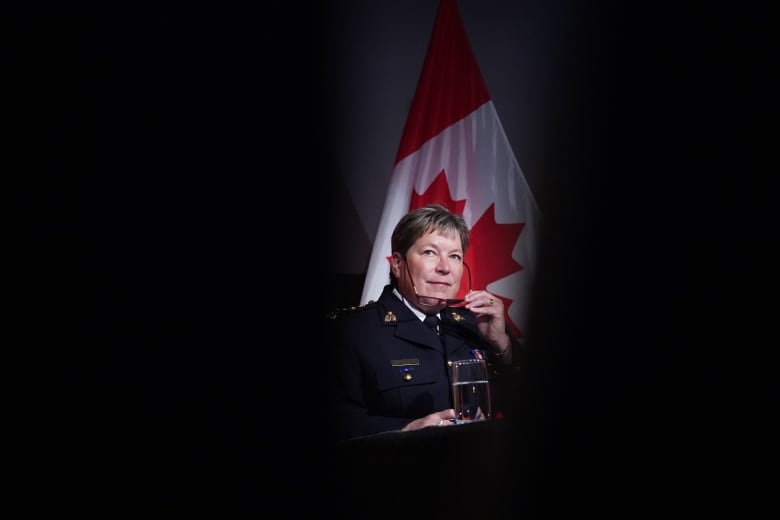RCMP’s policing of anti-pipeline protesters found reasonable, but watchdog sees gaps in surveillance policies
[ad_1]
The RCMP’s monitoring of Northern Gateway pipeline protesters was for the most part reasonable, according to a new report from the force’s watchdog, but the independent body flagged concerns police could create profiles of peaceful demonstrators and urged the Mounties to draft better policies around data retention.
The findings are included in a new report published this morning from the Civilian Review and Complaints Commission.
The review stems from a February 2014 complaint from the B.C. Civil Liberties Association (BCCLA) alleging officers spied on Indigenous and environmental groups opposed to the then-proposed Northern Gateway pipeline and who attended National Energy Board meetings in 2012 and 2013.
The civil liberties group thought the RCMP improperly monitored activities of various people and groups seeking participation at the hearings, engaged in covert intelligence gathering and infiltration of peaceful organization and disclosed information. Those actions, said the BCCLA, created a chilling effect for those who might wish to take part in hearings or other public discussions on petroleum issues.
But the watchdog’s investigation said it was reasonable for the RCMP to provide a visible presence at the National Energy Board hearings and to monitor the protests in Prince Rupert, B.C. for the purpose of identifying criminal activity.
It also ruled that it was reasonable for the RCMP to share information about potential threats to energy critical infrastructure with Natural Resources Canada.
It was unreasonable, however, for the RCMP to share the personal information of a protest organizer with the National Energy Board, said the report.
RCMP needs clearer policies on data retention: CRCC
While the force was largely cleared of wrongdoing, the CRCC flagged multiple concerns with force’s intelligence and surveillance policies and recommended explicit guidelines.
For starters, it found the RCMP lacks a clear policy with respect to video-recording public order events such as demonstrations and protests.
The review agency also renewed its call for better rules around the collection and retention of information when there are no criminal ties.
Canadians have the right to expect that the police will not retain their personal information simply for engaging in peaceful protest.– CRCC report
“The RCMP’s current policy on the use of open sources does not provide clear guidance as to the collection, use, and retention of personal information obtained from social media where there is no criminal nexus,” the report said.
The CRCC said there should be better guidance around the use and retention of personal information.
“There are legitimate reasons for the police to collect personal information from open sources, including for criminal and national security intelligence gathering and for investigations into offences,” said the report.
“However, the police may profile individuals for intelligence purposes without any suspicion that they intend to engage in criminal activity, or even that they have relevant information about a potential offence. They may only come to the police’s attention because they have exercised their rights to freedom of expression and freedom of association. This is extremely concerning. Canadians have the right to expect that the police will not retain their personal information simply for engaging in peaceful protest.”
To address those gaps, the watchdog recommended the RCMP introduce a policy regarding video-recording protests and demonstrations and that all recordings and images of peaceful protests and demonstrations be destroyed as soon as is practicable.
The watchdog also recommended that the force destroy records obtained from social media sources and personal information once it is determined that there is no criminal ties.
In her response, RCMP Commissioner Brenda Lucki said she supported most of the watchdog’s recommendations including developing video policy, destroying recordings and clearing up the open source policy.
Lucki agreed with most recommendations
Lucki said the RCMP now has a policy about using the internet for criminal investigations and intelligence but said the policy was not well understood and that compliance was low.
She partially supports the recommendation to destroy social media records, but said once records containing personal information (such as social media screen captures) are added to an operational files, the pre-existing information management policy requires the force to retain information for a set period.

The commission stressed concerns with that response.
“The commission is concerned that the RCMP is maintaining its original position — that is, that the RCMP would retain the personal information of peaceful protesters, demonstrators, and activists for as long as the existing policies require. In other words, for as long as the RCMP sees fit,” reads the report.
The BCCLA also complained in early 2014 about improper monitoring of anti-pipeline activists by the Canadian Security Intelligence Service.
The review committee that oversees CSIS dismissed the complaint in 2017, prompting the association to ask the Federal Court to revisit the outcome, a proceeding that is ongoing.
[ad_2]
SOURCE NEWS
